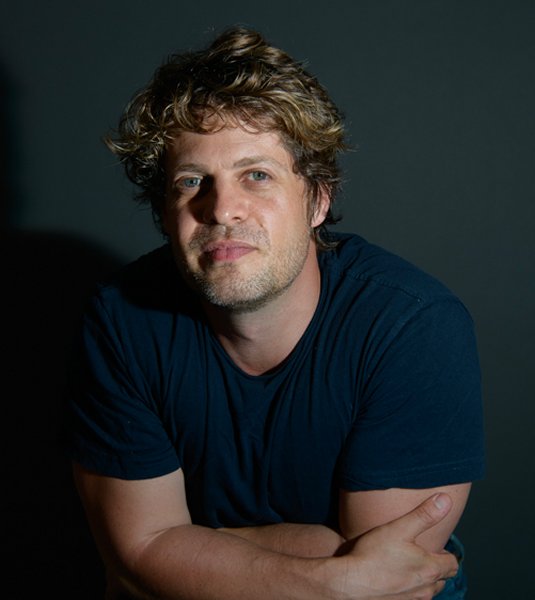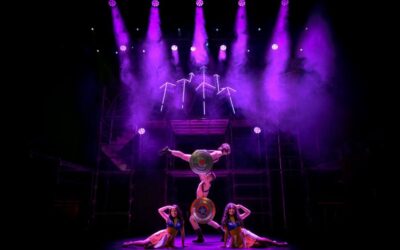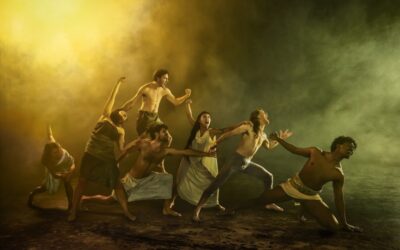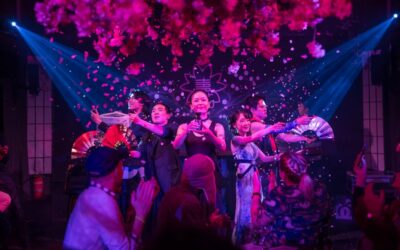Many would know the story of Yentl from the 1983 movie which was directed, co-written, co-produced, and starred the fabulous Barbra Streisand. The story is based on Isaac Bashevis Singer’s short story, Yentl the Yeshiva Boy, and traces the desire of an Ashkenazi Jewish woman in Poland in 1904 who decides to disguise herself as a man so that she can study Talmudic Law.
Now, Malthouse Theatre is proud to present a return season of Kadimah Yiddish Theatre’s Yentl. This new stage adaptation is the first since the 1975 Broadway play and Streisand’s iconic musical film.
Like some of those many people, director Gary Abrahams’ initial awareness of the story was through the Streisand film, which he had seen as a child.
“That film offers a very particular reading of the story, and a very narrow interpretation of the character of Yentl,” says Abrahams. “But when I read the short story, I realised just how much more interesting, complex and darker it actually is! It’s a story so full of contradictions and human complexities, and I became very excited at how a new theatre adaptation could give voice and life to all the darker, stranger and more mysterious elements that exist within the story.”
Abrahams says he is also very interested in conversations about gender. “Growing up at a time and in place where gender roles were fixed and dictated by society, I’m aware of how much my childhood was affected by always feeling that I wasn’t living up to the expectations of how a “boy” was supposed to be. Why was I always being pushed to behave in a way that just felt so unnatural to me?”
This question around gender and social expectations around gender is central to Yentl, alongside questions of spirituality and trying to make sense of the great mystery of life. These are two central themes that Abrahams says he connected to very deeply.
Another primary theme of the work has to do with an argument about the concepts of fate and free will.
Abraham points out that one of the first lines of the play actually comes from an idea explored in spiritual texts – ‘Everything is foreseen, but freewill is given.’
Abrahams posits that if everything is foreseen, or already decided, how can we live as if we have freewill to make choices?
Yentl herself is haunted by this question as she goes on her journey toward self realisation and discovery. Yentl is drawn to spiritual teaching in a way that is denied to women in her culture. In the era the story is set, women are forbidden from studying religious scripture. Her great conflict is that she knows that to satisfy her inner desire to study, she has to go against the laws set by the very God she longs to know about. But if she accepts that everything is foreseen, then doesn’t this mean that her natural desire to study is God given? Therefore, is she serving God by giving into this desire, or going against God?
“We have a character in the show which is based on the ancient Judaic idea of ‘The Rebellious Inclination’- in Yiddish it’s called the Yetzah Hora,” explains Abrahams. “It’s that part inside all of us that wants to challenge things and test the boundaries of ourselves and society. And that this rebelliousness can sometimes lead to good, and sometimes to evil.”
Abrahams would love an audience to reflect on that part of themselves, and to think about the great challengers and rebels of history and literature, and how without these sorts of figures society doesn’t progress and adapt and change. But of course, whether these rebels are hero’s or villains is always open to interpretation….
Streisand retained the English rights to the material in perpetuity, so director Abrahams, Elise Hearst and Galit Klas returned to the original Yiddish and adapted it themselves – translating it from the Yiddish version was the loophole needed in order to adapt the production.
The team started working on the adaptation in 2019, but it wasn’t really 2020 and 2021 (during lockdowns) that they really started getting into the meat of it.
“One of the few blessings of lockdown is that it allowed a lot of dedicated time to work on the adaptation,” he says. “It really was a two-year development between me and co-writers Elise Hearst and Galit Klass, and co-developer Evelyn Krape.”
In 2022, just after the final lockdown, they presented the first season at Arts Centre Melbourne. And for this return season at Malthouse, they have made some edits and changes to the text, and in rehearsals they are still finding new things, new meanings, and exploring the work.
Abrahams recalls that the translation aspect was interesting and strangely circular. “We didn’t translate directly from the Yiddish story, as opposed to read and examine the Yiddish short story alongside the primary English version (written by Singer himself), to make note of where the two versions diverged. We wrote our script in English, then worked with a translator, Rivke Margolis, who re-translated back into Yiddish. We wanted the Yiddish text to reflect the play text, and the theatrical choices we were making, rather than the original story. We also wanted to work with a style of Yiddish that was more heightened and poetic and could exist in a theatrical reality, rather than be specific to a particular town or city.”
Translating the original text also yielded many surprises to do with gender identity and spirituality.
“We felt there are lines in Yiddish that seemed to suggest Yentl’s gender confusion far more strongly than in the English version,” says Abrahams. “The English version feels more aligned with Yentl only choosing to dress and act as a man in order to study. But the Yiddish version points to an actual confusion within her soul! A real sense of her being non-binary.”
Abrahams explains that the Yiddish version also suggested this idea of the “evil inclination”, this sort of “spirit” inside of her that pushes and pulls her in directions, as if she had no control. Somehow the Yiddish version just suggested a world far more in tune with a mysterious spiritual realm. “Yiddish culture is full of demons, and dybbuks, and golems, and superstitions. That layer of reality is suggested in the Yiddish text simply because there is no direct English translation for some of the Yiddish words Singer uses in the short story.”
So, what should fans of the original film by Streisand expect from this adaptation. “To be honest, I think fans of Streisand’s film need to try and push that adaptation out of mind,” states Abrahams. “Because our adaptation is very different. For one thing we only have a cast of four! We have concentrated the story on the three primary figures of Yentl, Avigdor and Hodes. The core story is the same, but the interpretation is so different. The film is very romantic and sentimental. This adaptation is more brutal. It’s more haunted, it’s darker, it has a much deeper and more complex conversation about identity, and what it is to make transgressions that hurt others in pursuit of satisfying our own desires.”
As a creative, Abrahams is always drawn to stories that explore the complexity of human experience, and particularly stories about deceit. “The way we, as humans, lie to ourselves and lie to others, in the pursuit of our desires,” he says. “And how we have desires that sometimes push us to transgress against our higher moral natures.’ He’s very drawn to conflict and describes himself as very old-school when it comes to theatre- very ‘ancient Greece’. “The earliest “plays” are always centered around argument- thesis and anti-thesis. A central idea that is argued for and against. I don’t think theatre should merely “comment on” things. I think theatre should challenge, argue for and against, tear open, dissect, chew up, spit out, and make a meal of central ideas. But without offering any answers! I love it when a show leaves me questioning something, rather than when a show tells me exactly what to think.”
As a director, award winning Abrahams describes himself as intense and exacting adding (tongue in cheek) that he thinks he needs to chill out sometimes! “But I love the art form. I love how layered and multi-faceted theatre is. I love exploring the relationship between form and content.” Theatre, for Abrahams, is multi-dimensional poetry. The interplay between movement, staging, text, lights, design, sound, and performance creates meaning. Every choice creates meaning.
“I think with theatre, as an audience, you should always be aware of some greater meaning that remains tantalisingly out of reach, hidden in the sub-text, concealed and revealed at different times. Your job as director is to constantly play with what to reveal and conceal.”
Abrahams says the most important thing for him, by far, is keeping an audience engaged. “I want to keep an audience on edge, never too comfortable, always surprised, never at all sure of where things are going to go. And entertained! The work is failing if the audience aren’t entertained. I don’t mean laughing, or lightly enjoying…I mean gripped! Effortlessly paying attention. The thing I’m always striving for is for an audience to be genuinely glad they left their couch, they left the comfort of their home, they made the effort to get to the theatre, and that they had a worthwhile experience!”
Yentl is an ode to the feminist undertones and queer subtext of the original story and an invitation to celebrate the beauty of Yiddish culture. Says Abrahams, “this is an entertaining and enriching work. It’s unlike anything you’ve seen before. It’s accessible, it’s fascinating, it’s enriching, and it invites curiosity. And it blows open a familiar story in new and surprising ways.”
February 29 – March 17
malthousetheatre.com.au





